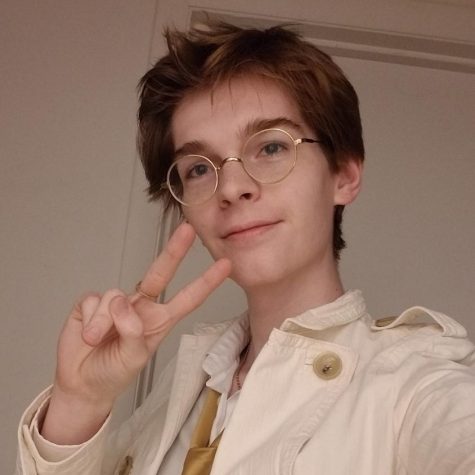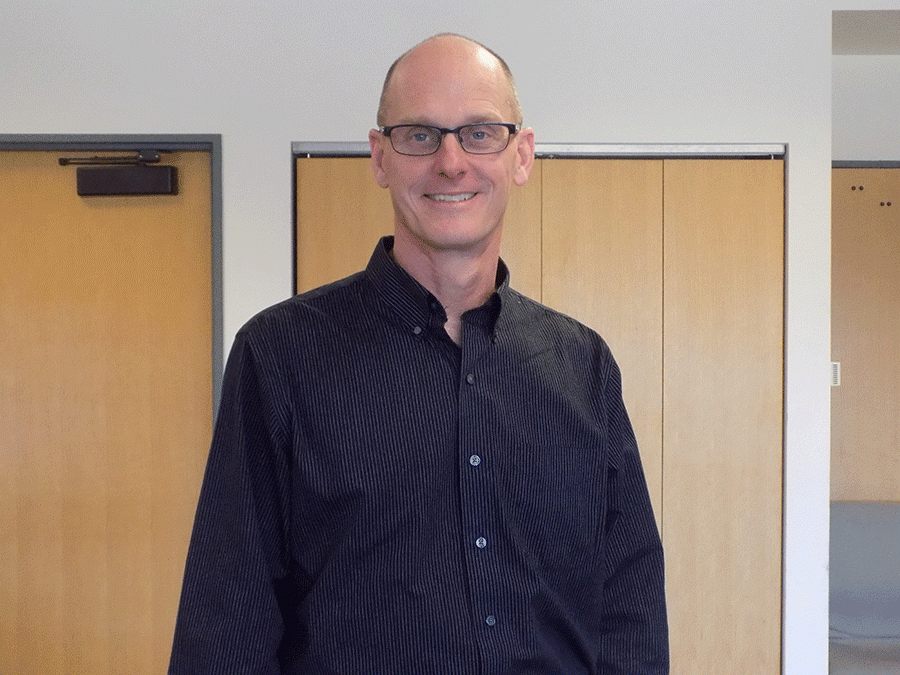Return to in-class instruction likely for fall, vaccination policy to be determined
Nolan Atkins
As the end of the 2020/2021 academic year approaches, NVU must make decisions on unpredictable matters. While vaccination efforts are making steady progress across the nation, the volatile nature of the pandemic makes certainty a scarcity.
The university plans to return to in-person instruction come autumn, according to an email from NVU President Elaine Collins on April 2. The message notes, “This, of course, will be dependent on the status of the global pandemic and any state restrictions in place.”
As of April 19, NPR predicts that Vermont will have fully vaccinated 85% of its population by early July, and the estimate is updated regularly with information from the past week.
Dean of Students Jonathan Davis said it’s currently undecided if students will be required to have vaccinations before they return to campus, and it will largely depend on instructions from the Governor and Legislature.
However, Davis said he is optimistic that restrictions will be lessened for the fall semester, citing spacing in classrooms and lounges as examples. “We expect many of those things to be lifted as long as there’s good participation in the vaccine program,” he said.
Davis also expressed interest in becoming a closed POD (Point of Dispensing) for the fall semester. Davis said the university has engaged in discussion about receiving vaccines for the campus community, but so far it hasn’t become a reality.
Director of Residential Life Jeff Bickford shared this desire. “I have absolutely no idea if this is in the cards,” he said, “but I would love to see a situation where, if someone had not had the opportunity to get vaccinated at home, that we could poke them in the arm with one of the one-dose [vaccines] as they arrive.”
As another precaution, Davis said the university is “submitting budgeting for that possibility of still having some… testing capability in the fall. We’re not sure if it’s going to be necessary, but we’re planning to be able to do it.”
Bickford said that residential life is hoping for fewer restrictions on student gatherings, but there will still be safety measures in place, such as keeping all rooms on campus as single-occupancy.
Room lottery opened on April 26, but Bickford said it will remain open into the summer. “If somebody decides in early May… to be back on campus… they’ll be able to still choose a room from what’s available at that point.”
Bickford said he wants as many students returning to campus as possible, and this is in pursuit of that goal. However, safety still takes precedence, and there are many aspects of life on campus that he is unable to predict, such as masking requirements, gathering restrictions, and off-campus travel and visitors.
Bickford said that when it comes to enforcing these kinds of regulations, “it usually ends up being student employees or one or two departments that are already stretched thin,” adding that the University’s consistency with its regulations is something he hopes to maintain into autumn. “If there’s a situation where half the campus is vaccinated and half’s not, I don’t really like the idea of having two sets of rules.”
Davis noted that as these restrictions decrease, there is a risk of common cold illnesses causing scares. “That’s going to cause some worry and concern, and it may contribute to… insistence that we increase testing or require masks at some point,” he said.
According to Bickford, the dining hall’s operations will depend heavily on the strictest regulations at the time. “They’re going to look at what the… food service guidelines are from the CDC and the state, [and] they’re going to look at what Sodexo Incorporated is recommending at a national level.”
NVU Provost Nolan Atkins said he looks forward to in-person classes and anticipates that autumn will feel much more normal to students, albeit with a few safety protocols still in place. “At this point, it’s monitoring vaccination, cases, variants and so on,” he said.
Atkins added that much of the decision-making process is still underway, such as whether to require students be vaccinated before returning to campus. “We have not tackled those issues yet,” he said. “We’re just trying to get through commencement at this point.”
According to Atkins, most classes will be held face-to-face, but some will still be offered virtually, as was typical before the pandemic. Atkins also said he anticipated an increase in hybrid-style courses, with some students in-person and others participating online.
“I think that, given the system transformation work… this kind of flexible delivery and virtual delivery is going to be a part of our future,” he said. However, Atkins also acknowledged that certain classes have handled the transition to remote instruction better than others.
Remote courses are not the only things that will be kept despite the end of the pandemic. For instance, Bickford said he “actually really liked having staggered move-ins, so I imagine we’ll have some form of that… going forward as opposed to everyone arriving in the first half hour of the morning.”
Bickford also said that despite hoping masks will be unnecessary, he plans to keep one handy. He said that he didn’t catch any common colds this year as a result of COVID-19 precautions and added that after the pandemic, “masking, at least in some certain circumstances, I’d expect to still be a norm.”
Davis seemed to have a similar outlook, saying he expects masks to become a regular part of life post-pandemic. “Common colds and seasonal flu have taken a backseat to COVID,” he said, “and I think people are catching on to the fact that masks and distancing prevent that kind of thing.”
The fall semester is far away, and the pandemic is inherently unpredictable, so many aspects of student life are still uncertain. Atkins, Bickford and Davis all said that should any drastic changes of plans occur, students would be notified via email, and announcements would be made on social media.
However, the three also seem to agree that such changes will be unlikely, and drastic circumstances would be required for NVU to pivot away from an in-person fall semester.
“I think you’d have to see probably a complete refusal on the part of many Americans to vaccinate,” said Davis, adding that if cases in the areas surrounding NVU’s campuses continued to climb, it would likely warrant reconsideration.

Senior, Creative Writing
From Fletcher, VT
Spring 2020-Present
"Call me mommy and I'll bring you blankets and hold you while you cry."



